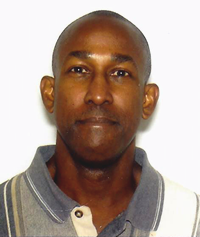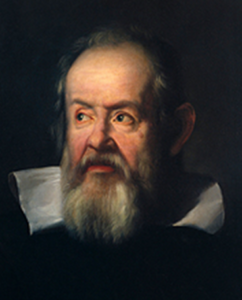 by Rolaant McKenzie
by Rolaant McKenzie
September 8, 2024
The city of Pisa in central Italy, well known worldwide for its leaning tower, is the birthplace of the famed astronomer, physicist, and engineer Galileo Galilei (1564-1642). He has been called the father of observational astronomy, a division of astronomy more concerned with recording data about the observable universe than with explaining astronomical objects and phenomena based on analytical models.
Improving on the telescopes of his day, Galileo observed the stars of the Milky Way galaxy, the phases of Venus, Jupiter and its four largest satellites, Saturn and its rings, lunar craters, and sunspots. Based on the data gathered from his astronomical observations, he eventually turned away from the prevailing scientific consensus and adopted the heliocentric view of the universe that was promoted by Polish astronomer Nicolaus Copernicus (1473-1543). This is the view that the Earth and other planets in the solar system orbit the Sun.
In his book Dialogue Concerning the Two Chief World Systems (1632), Galileo presented his findings from the data he gathered and critically compared heliocentrism with the geocentric view of the universe promoted by the Greek astronomer Claudius Ptolemaeus (Ptolemy) in the second century AD, where the Earth was described as the center of the universe around which everything revolves.
Because the Roman Catholic Church and the scientific establishment of the day maintained the traditional view of geocentrism, Galileo faced serious opposition from the cancel culture of his time. He was brought before the Inquisition in 1633 and declared to be “vehemently suspect of heresy.” Galileo was ordered to recant his views; his book and other works were censored; and he was sentenced to house arrest, where he remained for the rest of his life.
 More than 75 years after the death of Galileo, along with the technological advancement of observational tools, efforts were underway to rehabilitate him. This led to the Roman Catholic Church lifting the ban on all his scientific works and those of others promoting heliocentrism by removing them from the Index of Prohibited Books in 1835. On October 31, 1992, Pope John Paul II, stopping short of a formal apology, did declare that the Roman Catholic Church and its institutions wrongfully condemned Galileo, which caused him great suffering. This further opened the door to acknowledgement of his significant contributions to science and a better understanding of the universe.
More than 75 years after the death of Galileo, along with the technological advancement of observational tools, efforts were underway to rehabilitate him. This led to the Roman Catholic Church lifting the ban on all his scientific works and those of others promoting heliocentrism by removing them from the Index of Prohibited Books in 1835. On October 31, 1992, Pope John Paul II, stopping short of a formal apology, did declare that the Roman Catholic Church and its institutions wrongfully condemned Galileo, which caused him great suffering. This further opened the door to acknowledgement of his significant contributions to science and a better understanding of the universe.
The religious and scientific establishment confronting Galileo rejected the observable data that he presented because it contradicted their strongly held traditional views, and they saw it as a threat to their authority and power. His willingness to question conventional wisdom and accept what empirical truth revealed is a lesson to us today as we face news of supposed impending health crises from international organizations such as the World Health Organization (WHO) and current and former national public health authorities.
The former director of the U.S. Centers for Disease Control and Prevention (CDC), Robert Redfield, appeared in various news outlets in June 2024, expressing certainty of an upcoming bird flu pandemic. He claimed that once it starts spreading among humans, the mortality rate will be somewhere between 25 and 50 percent. Redfield also mentioned the challenges of developing a reliable diagnostic test.
There has been no observable, credible evidence of an epidemic of bird flu, much less anything indicating an imminent pandemic. The unsubstantiated high mortality rate put forth by Redfield and promoted by some media networks, which receive large sums of advertisement money from the pharmaceutical industry, appears to be an effort to induce fear in people to generate a “need” for certain diagnostic tests. His ulterior motivations can be seen in the fact that, due to his consulting work with Roche Diagnostics Corporation in developing such a test, he stands to benefit financially from a declared health emergency that makes use of tests produced by this corporation.
The WHO’s efforts to magnify the bird flu into a worldwide health crisis are meant to instill fear so that the nations of the world will grant it the power to declare health emergencies and dictate the responses to them. This includes attacking the food supply and creating famine through culling cattle and poultry allegedly to stop the bird flu, opening the door for the World Economic Forum (WEF) and its partners like Bill Gates to herd people into consuming his laboratory-created meat.
Even some alternative news outlets have engaged in promoting sensational stories regarding this to lure listeners to their sites, where they have a variety of products for sale.
Do not give into the fearmongering of promoted “experts,” the scientific and public health establishment, or political leaders who often use appeals to authority to get people to relinquish their rights and liberties to them. Critically examine and test their claims for validity; look at their track record; search for agendas or conflicts of interest; and do not be daunted by them or their efforts to censor any contrary credible information you discover. If we fail to do so, then organizations like the WHO, national and local health bureaucrats, and political leaders will once again, as they did in 2020-2023, turn much of the world into a prison through lockdowns, restrictions on speech and movement, manufactured scarcity, and forced experimental medical interventions that bring great harm and death.
But there is another examination we all need to do, for it not only involves this life but also our eternal placement afterward.
During Jesus’ earthly ministry, His teachings faced opposition from the religious and political establishment of His day. They were contrary to its traditional understanding of the coming Messiah and what He would do. More importantly, the religious leaders viewed Jesus as a threat to their authority and power (John 11:47-53).
Even though these authorities could read the Scriptures, observe His miraculous works, including raising the dead, and see that Jesus fulfilled the prophecies demonstrating that He was the Messiah, most of them would not believe in Him and preferred to maintain the status quo because they preferred their positions of authority and the approval of men over the approval of God (John 12:42-43).
Their efforts to persecute and cancel Jesus culminated in Him being arrested, placed before an inquisition where He was condemned, and being handed over to the Roman authorities, who put Him to death on a cross. But fulfilling another prophecy for the Messiah, He rose again from the dead, proving the truth of all He taught about God and the only way to forgiveness and reconciliation with Him.
Simon Greenleaf (1783-1853) was an American lawyer and jurist who was one of the principal founders of the Harvard Law School. His work, A Treatise on the Law of Evidence (3 volumes, 1842-1853), expounded on the rules of evidence and cross-examination that remain a foundation for U.S. legal and investigative procedures today. Greenleaf sought to apply the rules of evidence and facts of history to the resurrection of Jesus Christ and found that He did indeed rise from the dead. He presented his findings in another book, The Testimony of the Evangelists (1874).
Galileo and Greenleaf, in their respective disciplines, were willing to test and see the truth even though it went against prevailing narratives of the day. We should especially do the same when it comes to who Jesus is and the need for forgiveness and reconciliation with God that comes only through faith in Him.
“O taste and see that the LORD is good; how blessed is the man who takes refuge in Him!” (Psalm 34:8)
© 2024 Rolaant McKenzie – All Rights Reserved
E-Mail Rolaant McKenzie: rolaant@gospeloutreach.net
Website: http://www.gospeloutreach.net/





